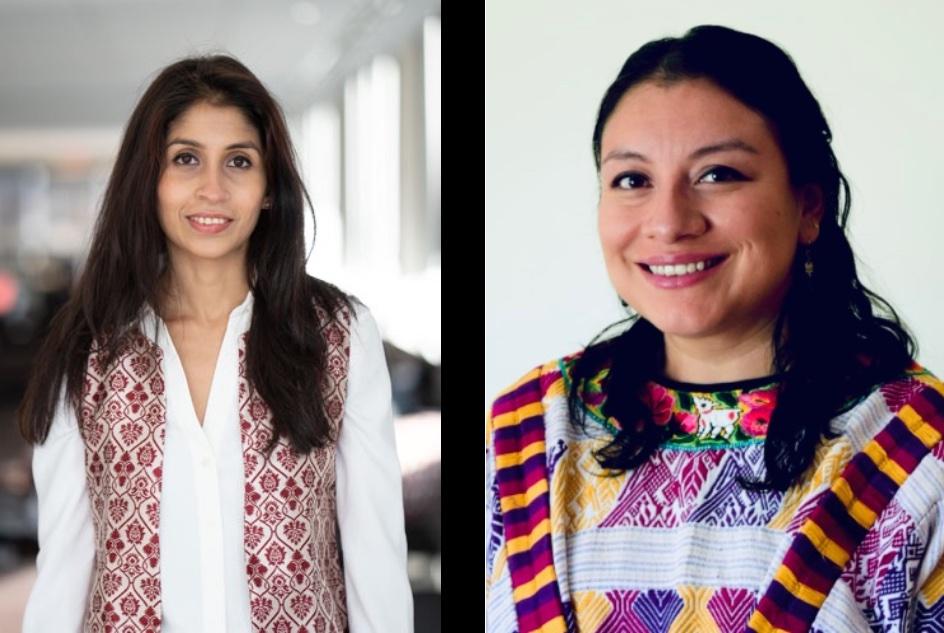
Ishani Dasgupta (left) and María de los Ángeles Aguilar (right).
Two scholars, the anthropologist Ishani Dasgupta and the historian María de los Ángeles Aguilar, have joined the Pozen Center, expanding the range of human rights courses the center offers directly to students.
Both scholars exemplify the center’s commitment to approaching human rights through the productive intersection of research, teaching, and practice.
Dasgupta, who joins the center as an assistant instructional professor, comes to UChicago from Case Western Reserve University, where she was an Andrew W. Mellon postdoctoral fellow. Her anthropological research is based on fieldwork among Tibetan refugee settlements and communities in India, where she has collaborated closely with grassroots political organizations and studied their cultures of resistance.
In her research and teaching, she attempts to bring refugee voices to the forefront of discussions about refugee policies and rehabilitation practices.
This academic year, Dasgupta will teach at least three new Pozen Center courses, including: "Global Challenges to Human Rights," "Power and Protest in a Media-Driven World," and "Beyond State Power: Margins, Borders, and Frontiers." In the classroom, she says, she attempts to model the lessons she’s learned from anthropological fieldwork, including “the importance of deep and ethical listening, and dedication to radical openness.”
Dasgupta will be working to convert her dissertation into a book, Refugee Nation. Her articles are forthcoming in Political and Legal Anthropological Review and Himalaya.
Aguilar joins the Pozen Center from Yale University, where she was a postdoctoral associate and lecturer at the Council on Latin American and Iberian Studies. She researches state-sponsored violence, policing, and processes of criminalization in Guatemala during the second half of the 20th century.
She is currently working on Una Institución Como la Nuestra: Police and Policing in Guatemala City, a book exploring the interconnections of race, policing, criminalization, and political control during the country’s genocidal armed conflict (1960-1996). The work is based on Spanish-language records from the now-closed Guatemalan National Police Historical Archive (AHPN), a one-of-a-kind collection with over 70 million documents related to police activity in the country.
Aguilar has also worked on multiple collaborative research projects centered on historical memory, collecting testimony from Indigenous communities and genocide survivors. For over nine years, Aguilar was a columnist in the Guatemalan newspaper elPeriodico, where she wrote about the country’s social and political issues and denounced repressive policies that affected the country’s Maya population.
This year Aguilar will teach “Policing Life”, a course that “explores the historical and contemporary uses of police forces by various states to control and criminalize radicalized populations, minority groups, and social movements in diverse geographical regions.”
